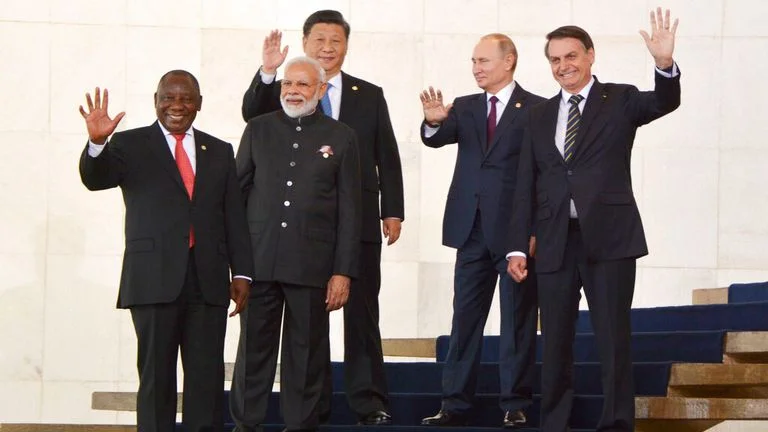Members of the BRICS economic group of major emerging economies are meeting this week in
South Africa for a summit that could determine the future of the bloc – and how hard it pushes
back against a world order it sees as unfairly dominated by the West.
The group of Brazil, Russia, India, China and South Africa has never been more prominent on
the world stage. But the BRICS themselves are complicated.
Russia’s leader can’t attend the summit because host country South Africa would be obliged to
arrest him for alleged war crimes. Two other members, India and China, have a
simmering border conflict. And while Beijing is locked in a rivalry with the United States, New
Delhi has close ties with Washington.
It’s not the happiest of families. But nonetheless that family is now entertaining formal bids from
nearly two dozen countries to join their bloc of major emerging economies.
Discussions around adding new members are expected to figure high on the agenda of the
three-day summit beginning Tuesday, where BRICS leaders – with the exception of Russia’s
Vladimir Putin – will gather in-person for the first time since the pandemic.
Putin, who has an International Criminal Court warrant out for his arrest linked to his brutal
South African President Cyril Ramaphosa on Sunday threw his support behind BRICS
expansion, saying a larger body would “represent a diverse group of nations” that share a
“common desire to have a more balanced global order” in a “increasingly complex and fractured”
world.
At stake in decisions around expanding is the direction and identity of the group, whose
members aim for more say in an international system they see as favoring the West and Group
of Seven (G7) nations, despite a shift in who dominates the global economy over recent
decades.
The bloc risks becoming more pointedly geopolitical in its bid to rebalance global power, analysts
say, especially as China and Russia seek to bring it on side against rising tensions with the West
– something its expansion could facilitate.
Speaking at a news conference ahead of the summit last week, China’s envoy in South Africa
said more and more countries hoped to join BRICS to “safeguard their legitimate interests.
In the face of some countries wielding the ‘big stick’ of unilateral sanctions and engaging in longarm jurisdiction, the BRICS countries insist on equal dialogue and consultation,” Ambassador
Chen Xiaodong said, using Beijing’s typical language to criticize what it sees as US policy.
The issue of expansion may be “the association’s first stress test in its near decade-and-a-half of
existence,” according to Bhaso Ndzendze, an associate professor of politics and international
relations at the University of Johannesburg.
Adding members “would expand the group’s global presence” and increase buy-in for its agenda
to counter Western political dominance, he said.
But there are differences in opinion on whether to expand, and “certainly not all (members)
would support entry by the same countries


Leave a Reply